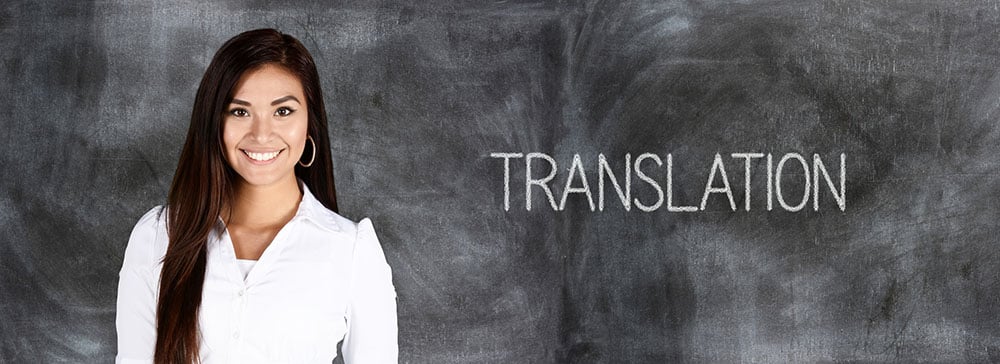Translation services play an essential role in global communication, enabling businesses, governments, and individuals to convey information across linguistic and cultural boundaries. Whether facilitating international trade, ensuring legal compliance, or enhancing customer engagement, selecting the right type of translation service is crucial. Each category of translation serves a distinct purpose, requiring specialized knowledge and expertise.
Literary Translation
Literary translation focuses on works of fiction and non-fiction, including novels, poetry, essays, and plays. This form of translation goes beyond linguistic accuracy, demanding a deep understanding of the author’s style, tone, and cultural references. Translators in this field must capture the artistic essence of the original text while adapting it for a new audience.
A successful literary translation preserves the emotional depth and subtleties of the original work. Idioms, wordplay, and symbolism often do not have direct equivalents in another language, requiring creative adaptation. This process ensures that readers in the target language experience the text in a way that mirrors its original impact.
Technical Translation
Industries such as engineering, IT, pharmaceuticals, and manufacturing rely on technical translation for user manuals, patents, product specifications, and research papers. Accuracy is paramount, as even minor errors in terminology can lead to operational failures, safety hazards, or legal disputes.
Technical translators must possess industry-specific expertise, ensuring that complex concepts and processes are conveyed with precision. Many professionals in this field have backgrounds in engineering, medicine, or science, allowing them to understand and translate highly specialized content effectively.
Legal Translation
Legal translation covers contracts, court documents, regulatory filings, and corporate agreements. The nature of legal language—precise, structured, and often complex—requires translators with an in-depth understanding of legal systems in both the source and target countries.
A single mistranslation in a legal document can alter its meaning, leading to contract disputes or regulatory penalties. Legal translators must be meticulous in their work, ensuring that terminology aligns with the legal framework of the target jurisdiction. Many also work closely with legal professionals to confirm the accuracy of translated texts.
Medical and Healthcare Translation
The medical and healthcare industries require accurate translation of patient records, clinical trial documentation, pharmaceutical instructions, and medical research papers. Given the high stakes in this field, any inaccuracy can compromise patient safety and lead to serious consequences.
Medical translators must be well-versed in medical terminology and procedures. They often work alongside healthcare professionals to ensure that translated documents remain precise and comprehensible for both practitioners and patients. Many countries also require medical translations to comply with strict regulatory guidelines.
Business and Financial Translation
Corporate entities expanding into international markets require financial and business translation services for annual reports, investment portfolios, insurance policies, and market research studies. Accuracy in this sector is essential, as financial misinterpretations can lead to regulatory infractions or strategic missteps.
Translators specializing in this domain must understand economic principles, financial instruments, and industry regulations. The nuances of financial terminology differ between countries, requiring translators to apply their expertise to ensure clarity and compliance.
Marketing and Advertising Translation
A successful marketing strategy depends on effective communication with the target audience. Marketing translation involves adapting advertising campaigns, branding materials, product descriptions, and promotional content to suit different linguistic and cultural landscapes.
Literal translation alone is insufficient in this field. Translators must consider local customs, humor, and consumer behavior to ensure that the message remains persuasive and culturally relevant. The process, often referred to as transcreation, blends translation with creative adaptation to maintain brand identity while resonating with the intended audience.
Website and Software Localization
Expanding digital presence across international markets requires more than simple word-for-word translation. Website and software localization ensure that digital content is culturally adapted and technically optimized for the target audience. This process includes translating web pages, user interfaces, mobile applications, and customer support chatbots.
Localization extends beyond language adaptation, incorporating elements such as date formats, currencies, imagery, and navigation styles. An effective localization strategy enhances user experience, improving engagement and accessibility for international users.
Certified Translation
Certain documents require official certification to confirm the accuracy of their translation. Companies specializing in certified translation uk, or elsewhere, are commonly used for birth certificates, academic transcripts, immigration paperwork, and legal affidavits.
Governments, educational institutions, and legal entities often require certified translations to be completed by authorized professionals who can vouch for their accuracy. Many certification processes involve a sworn translator or an official stamp to verify the document’s authenticity.
Audiovisual Translation
The growing demand for multimedia content has led to increased reliance on audiovisual translation. This category covers subtitles, dubbing, and voiceovers for films, television programs, corporate videos, and online courses.
Translators working in this field must consider timing constraints, speech patterns, and lip-syncing requirements when adapting content. Capturing the original tone and intent while making dialogue sound natural in the target language is a complex yet essential aspect of audiovisual translation.
Interpreting Services
Unlike document translation, interpreting is a real-time service that facilitates verbal communication. It is commonly used in conferences, diplomatic meetings, court hearings, and medical consultations.
Interpreting services are divided into several categories:
- Simultaneous interpreting: The interpreter translates spoken words in real time, often using headsets in conferences or large events.
- Consecutive interpreting: The speaker pauses after each sentence or segment, allowing the interpreter to convey the message before continuing.
- Whispered interpreting: The interpreter whispers the translation to a single listener, commonly used in diplomatic settings.
- Telephone and video interpreting: Remote interpreting services that facilitate communication between parties in different locations.
Interpreters require sharp listening skills, cultural awareness, and the ability to think quickly while maintaining accuracy.
The Importance of Choosing the Right Translation Service
Each type of translation service serves a distinct function, requiring expertise that aligns with the content’s purpose and industry. Selecting the appropriate translation service ensures that messages remain clear, professional, and culturally relevant.
Businesses and individuals working across linguistic boundaries must consider not only language accuracy but also legal, technical, and cultural nuances. Partnering with experienced translators who specialize in the relevant field safeguards against miscommunication, regulatory errors, and unintended cultural missteps. By investing in the right translation service, organizations strengthen their international presence, build trust with global audiences, and ensure seamless communication across borders.






